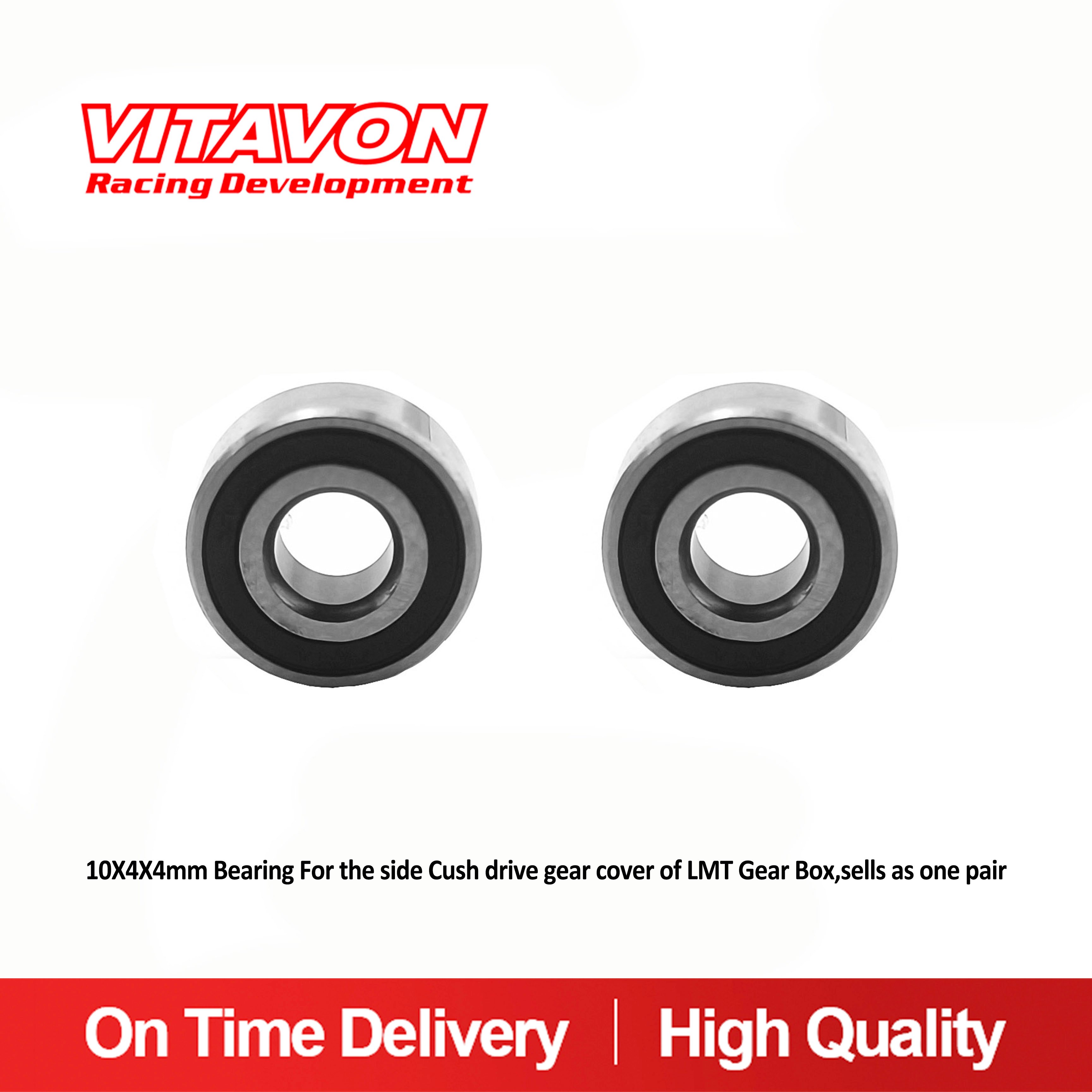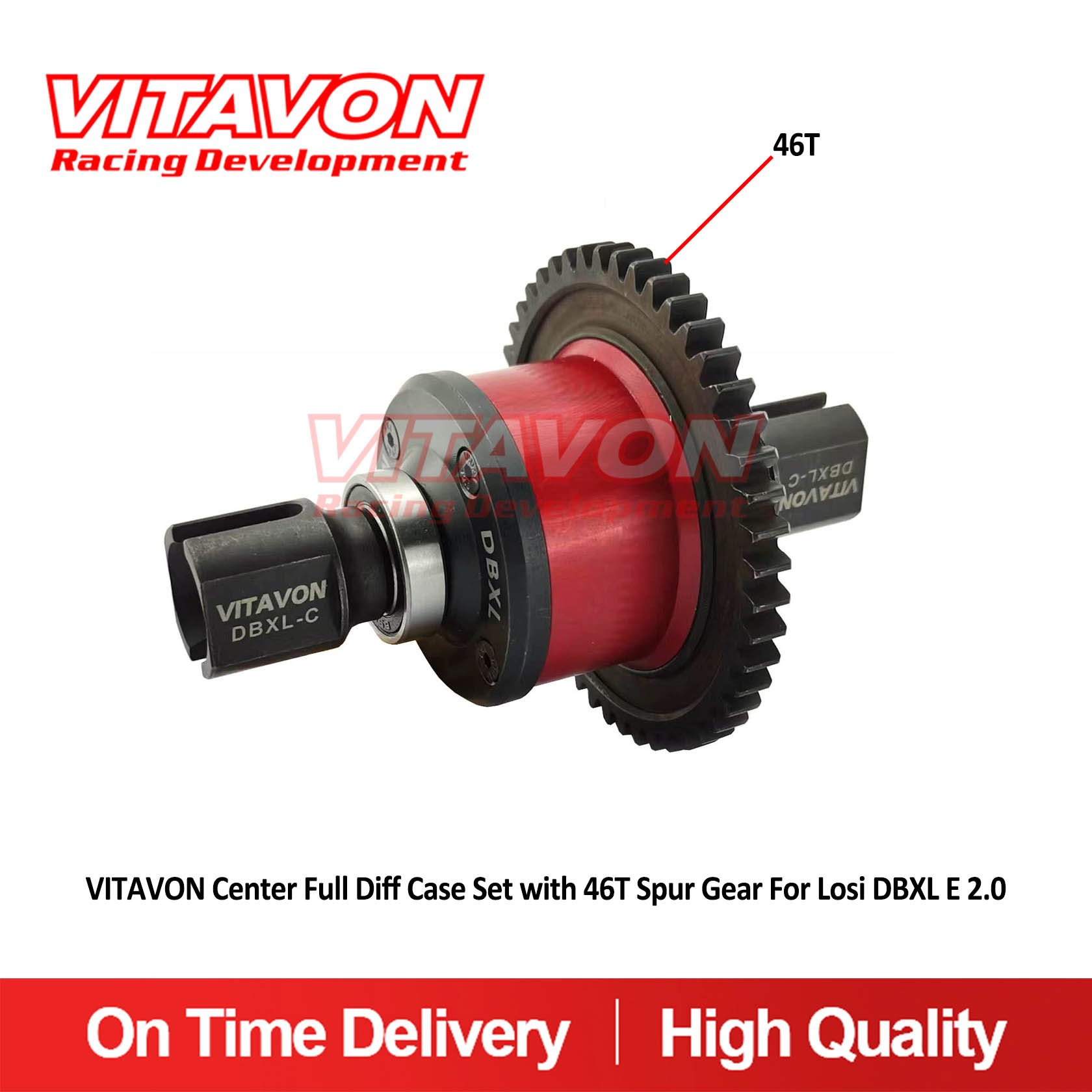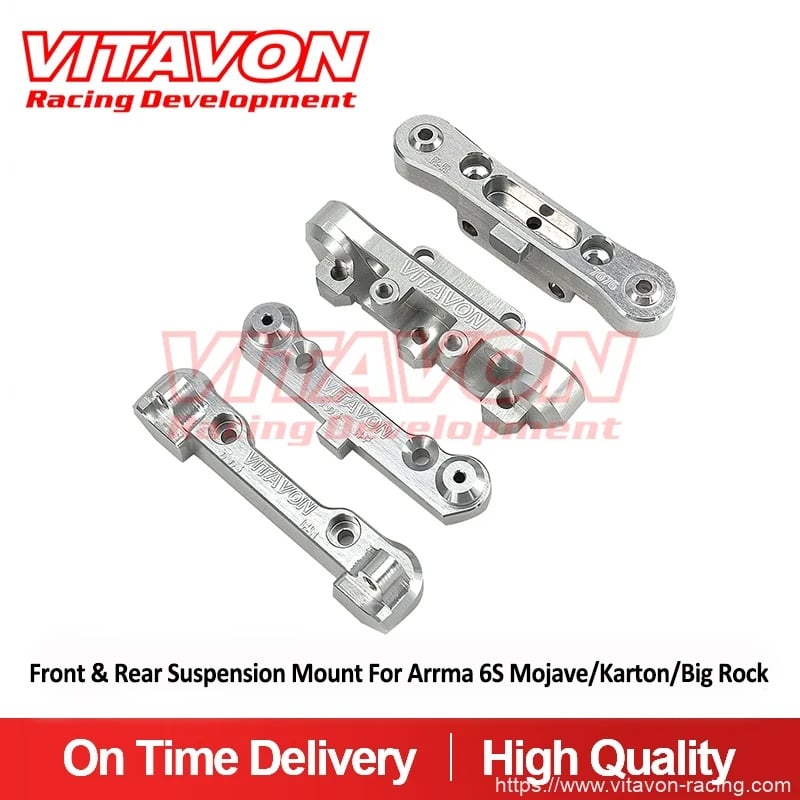Exploring the Unique Advantages and Applications of Best Continuous Servo Alternatives in Modern Manufacturing
Table of Contents
- Understanding Continuous Servo Alternatives: A New Era in Manufacturing
- Key Features of Continuous Servo Systems for Various Applications
- Comparative Analysis: Continuous Servo vs Traditional Drive Systems
- Industry-Specific Advantages of Continuous Servo Technologies
- Case Studies: Successful Implementations of Continuous Servo Alternatives
- Future Trends: Innovations in Continuous Servo Solutions for Manufacturing
- FAQS
- Related Posts
 You know, in the fast-changing world of modern manufacturing, Continuous Servo technology is really taking center stage. It brings some pretty amazing benefits that boost precision, efficiency, and adaptability. A recent report from MarketsandMarkets even predicts that the servo motors market will hit a whopping USD 12.5 billion by 2026, all thanks to the ongoing innovations in automation and robotics.
You know, in the fast-changing world of modern manufacturing, Continuous Servo technology is really taking center stage. It brings some pretty amazing benefits that boost precision, efficiency, and adaptability. A recent report from MarketsandMarkets even predicts that the servo motors market will hit a whopping USD 12.5 billion by 2026, all thanks to the ongoing innovations in automation and robotics.
Over at Dongguan Vitavon Sports Goods Co., Ltd., they’re totally riding this wave! They’re all about quality in their racing systems, using top-notch precision machining with aerospace-grade aluminum and hardened HS steel. Each component has this modular design that allows for flexibility and customization, which is perfect for high-performance applications.
By weaving Continuous Servo alternatives into their manufacturing process, VITAVON Racing System isn’t just fine-tuning their production capabilities—they're also setting a standard for quality in the super competitive racing industry. It’s exciting to see how they’re leading the way!
Understanding Continuous Servo Alternatives: A New Era in Manufacturing
You know, in today's manufacturing world, the whole shift to continuous servo alternatives is a pretty big deal – it really represents a major step up in how we handle efficiency and tech innovations. With industries feeling the heat from rising demands for precision and speed, these new alternatives are really stepping up to the plate. They enhance automation without relying on those hard-to-find rare-earth magnets, which is a huge plus. Plus, everyone’s a bit worried about resource scarcity these days, so manufacturers are on the lookout for high-performance motors that don’t break the bank while still keeping things reliable.
And get this: the way advanced motion control systems are being rolled out in all sorts of applications – think robotics and automotive testing – just shows how flexible continuous servo tech really is. For example, mobile robots and automated guided vehicles are totally changing the intralogistics game, making everything run smoother compared to the clunky hydraulic systems we used to rely on. Electric actuators are popping up as a strong alternative to hydraulic mechanisms, leading manufacturing into a new era that’s not just more efficient but also way more sustainable. It’s exciting to see a focus on innovative solutions that amp up productivity while also keeping an eye on our environmental impact.
Exploring the Unique Advantages and Applications of Best Continuous Servo Alternatives in Modern Manufacturing
| Feature | Continuous Servo Alternative 1 | Continuous Servo Alternative 2 | Continuous Servo Alternative 3 |
|---|---|---|---|
| Torque Capacity (Nm) | 50 | 40 | 45 |
| Speed (RPM) | 3000 | 2500 | 2700 |
| Accuracy (mm) | 0.01 | 0.02 | 0.015 |
| Feedback Type | Incremental Encoder | Absolute Encoder | Incremental Encoder |
| Weight (kg) | 7 | 5.5 | 6.5 |
| Power Consumption (W) | 150 | 120 | 140 |
| Operational Voltage (V) | 24 | 36 | 24 |
Key Features of Continuous Servo Systems for Various Applications
You know, continuous servo systems are honestly a game changer in modern manufacturing. They really bring that precision and efficiency that so many applications need. These systems are built to keep torque and speed steady, which is perfect for things like CNC machining, robotics, and even 3D printing. Especially in our competitive world today, picking the right continuous servo alternatives can really make a difference in product quality and overall operational costs.
At Dongguan Vitavon Sports Goods Co., Ltd., we totally get how crucial precision is in manufacturing. That's why our VITAVON Racing System is such a standout—it’s got this modular design that lets you customize it for whatever your specific manufacturing needs are. Plus, it’s made with aerospace-grade aluminum and hardened HS steel components, so you know it's durable but still lightweight, which is super important for high-performance applications.
When you’re choosing continuous servo systems, don’t forget to think about stuff like response time, torque capabilities, and how well it fits with your current machinery.
**Tip 1:** Keep in mind that regular maintenance and calibration of your continuous servo systems can really boost their lifespan and overall performance.
**Tip 2:** And always take the time to check out the torque and load requirements of your application. That way, you can pick the most suitable servo alternative and ensure you’re running at peak efficiency and precision in your operations.
By incorporating these tips, manufacturers can really tap into the full potential of continuous servo technologies.
Comparative Analysis: Continuous Servo vs Traditional Drive Systems
You know, when it comes to modern manufacturing, the decision between using continuous servo systems and sticking with traditional drive systems is super important for how efficient operations run and the quality of the products we make. Continuous servo systems really shine here because they provide that smooth and precise motion control that traditional systems, which usually work with discrete stepping, just can’t match. This is a game-changer, especially when you're dealing with different loads and speeds—continuous servos can handle it way better, making them perfect for situations where you need reliable performance over time.

And get this—continuous servos are all about responsiveness and adaptability. That becomes key in those fast-paced manufacturing settings. Unlike traditional drive systems, which can lag a bit when speeding up or slowing down, continuous servos keep things running smoothly and can quickly adjust to any changes on the floor. Plus, with advanced feedback mechanisms built in, manufacturers can hit higher accuracy and cut down on cycle times, which means better productivity and less waste. As industries keep evolving, you’re going to see just how much continuous servo systems have the edge over those old-school drive systems. It’s all about sparking innovation and boosting efficiency in how we make things.
Industry-Specific Advantages of Continuous Servo Technologies
You know, continuous servo technologies are really starting to make waves across different manufacturing sectors, and it’s easy to see why! They have some pretty unique capabilities that cater to specific industry needs. Take automotive manufacturing, for example. These continuous servo motors deliver super precise control and consistent torque, which means assembly lines can run way more efficiently. And honestly, who doesn’t love that? This sort of precision doesn’t just speed things up; it also improves the quality of the products. Less rework and more compliance with all those pesky industry standards? Yes, please! But hey, if you're thinking about switching to continuous servo alternatives, there are a few things you should definitely keep in mind. First off, really take the time to analyze your workflows. Figure out where your current systems are kinda dropping the ball and see how a continuous servo could step in and make things better. Don’t forget about scalability, too! It’s super important to pick a system that can grow with you because, let’s face it, you want something that can support your manufacturing needs in the long run.
But hey, if you're thinking about switching to continuous servo alternatives, there are a few things you should definitely keep in mind. First off, really take the time to analyze your workflows. Figure out where your current systems are kinda dropping the ball and see how a continuous servo could step in and make things better. Don’t forget about scalability, too! It’s super important to pick a system that can grow with you because, let’s face it, you want something that can support your manufacturing needs in the long run.
Oh, and here’s another handy tip: focus on how well these continuous servo technologies can integrate with what you already have. Make sure they can easily gel with your existing machinery and software. This not only saves you a ton of time when setting things up but also means less disruption to your ongoing operations. By keeping these advantages in mind, manufacturers can really boost productivity and stay ahead of the curve in today’s fast-paced market.
Case Studies: Successful Implementations of Continuous Servo Alternatives
You know, in today's fast-paced manufacturing world, companies are really stepping up their game by switching to continuous servo options. These include things like stepper motors and direct-drive systems, which are turning out to be super versatile and effective across different industries.
Take that recent case study from a top automotive manufacturer, for example – they found that making the switch from traditional servo motors to continuous servos actually cut their production time by 20% and boosted the overall quality of their products. Pretty impressive, right? This change didn’t just tidy up their operations; it also brought in the precision they needed for those tricky assembly tasks.
And there's this really interesting case from the food processing industry, where they integrated a continuously running servo system into their packaging lines. This adaptation made it so much easier to switch between different product types, slashing their downtime quite a bit. If you're a manufacturer looking to hop on the continuous servo train, it’s a good idea to really look into what your specific needs are and weigh the potential benefits.
Here’s a tip: Start by taking a good look at your current systems and pinpointing where you could bump up efficiency. Chat with vendors who specialize in continuous servo alternatives to get the lowdown on the options that might fit your operational hurdles. And hey, running some pilot programs can really shed light on what works for you before diving in headfirst!
Future Trends: Innovations in Continuous Servo Solutions for Manufacturing
You know, manufacturing is changing super fast these days, and continuous servo solutions are really stepping up their game when it comes to precision and efficiency. Looking ahead, the future of these technologies is all about innovative designs that not only boost performance but also bring some pretty cool perks compared to the old-school systems. Right now, we're seeing a lot of buzz around modular design approaches, which is pretty neat because they let manufacturers tailor and scale their systems to fit their needs. Just take a look at what companies like Dongguan Vitavon Sports Goods Co., Ltd. are doing—they’re all about that modular vibe in every piece of their racing setups. By using top-notch design principles and high-quality materials like aerospace-grade aluminum and tough HS steel, manufacturers are really cranking up the durability and functionality of their products.
On top of that, breakthroughs like oversized bearings and hardware are playing a key role in making these continuous servo solutions rock-solid. The demand for better performance in manufacturing is pushing companies to keep up with the latest tech trends. With precision machining and OEM quality standards coming into play, today’s continuous servo options are raising the bar in the industry. As the competition for efficiency and precision heats up, embracing these cutting-edge servo technologies is sure to transform manufacturing capabilities, helping companies respond better to the evolving market needs.
FAQS
: Continuous servo alternatives are advanced motor technologies that enhance automation and operational efficiency without relying on rare-earth magnets. They are important due to their ability to meet escalating demands for precision and speed while being cost-effective and environmentally sustainable.
Continuous servo systems provide smoother and more precise motion control than traditional drive systems, which typically use discrete stepping. They handle varying loads and speeds more efficiently, making them ideal for high-demand manufacturing applications.
Continuous servo systems offer superior responsiveness, adaptability, and optimal performance without delays during acceleration or deceleration, allowing for higher accuracy, reduced cycle times, and enhanced productivity.
Advanced motion control systems enhance the versatility of continuous servo technologies by enabling their application in various fields, including robotics and automotive testing, and facilitate streamlined operations by replacing traditional hydraulic systems.
Innovations such as modular design approaches, oversized bearings, and the use of advanced materials like aerospace-grade aluminum and hardened HS steel are enhancing the durability and functionality of continuous servo solutions.
Modular design allows manufacturers to customize and scale their systems to better meet specific operational needs, aligning with the push for efficiency and adaptability in modern manufacturing.
Precision machining ensures that continuous servo systems meet OEM quality standards, which contributes to their performance reliability and helps set new benchmarks within the manufacturing industry.
Continuous servo technologies reduce reliance on hydraulic systems and rare-earth materials, leading to more sustainable and efficient manufacturing practices while supporting efforts to minimize resource scarcity.
Electric actuators serve as effective replacements for hydraulic mechanisms, promoting a shift towards more environmentally friendly and efficient manufacturing processes.
The trend towards advanced materials, customizability, and innovative designs showcases the increasing significance of continuous servo solutions in enhancing precision, efficiency, and adaptability in manufacturing.
Related Posts
-

Exploring the Unique Advantages and Applications of the Best Continuous Servo Technology in Modern Manufacturing
-

What Enhancements Can You Expect from Scx10iii Upgrades for Your RC Experience?
-

The Ultimate Checklist for Sourcing the Best Metal Shocks for Your Business Needs
-

Crafting Excellence: The Global Legacy of China's Best SCX24 Deadbolt Manufacturing
-

Unlocking Advantages of Capra Transmission for Global Procurement Success
-

Unleashing Traxxas Maxc to the World Quality That Conquers Global Markets
Blog Tags:




